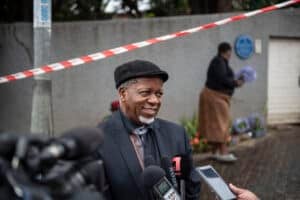If he dares to be bold and the deal-making is with the likes of the DA and IFP, he faces the real possibility of a palace coup and the ignominy of recall.

The scale of the electoral drubbing that the ANC has taken is enormous. Its effects will reverberate across the political landscape for weeks and months to come.
While it has tried its best to put a brave face on it, there should be no doubt that behind the scenes the party is reeling. Almost six dozen ANC MPs are now unemployed.
So, too, at a provincial level, a few dozen of the party’s MPLs.
It’s not only in these official positions that the pain will be felt. The full bulk of the ANC, like an iceberg, is nine-tenths hidden from view, submerged in the murky waters of nepotism, cronyism and corruption.
That the scale of the carnage took the ANC’s leadership by surprise is shown by the rank of the casualties. Half a dozen senior Cabinet ministers, including close allies of President Cyril Ramaphosa, bit the dust.
ALSO READ: ANC’s game-changer: Pursuing a Government of National Unity to break deadlock
Although it’s still unclear exactly what effect this upheaval will have on the delicate balance of factional alliances within the ANC, it will be substantial.
This is a moment of great threat, but also great opportunity for Ramaphosa.
The preliminary shape of the new administration became apparent after the meeting on Thursday of the ANC’s National Executive Committee (NEC).
After 12 hours of heated discussion, Ramaphosa eventually announced the party’s decision to invite other political parties to form a government of national unity (GNU).
This GNU is by no means the final word. As ANC Secretary-General Fikile Mbalula put it, “The GNU that we talk about might be different from 1994 … the devil is in the details.”
ALSO READ: ANC’s surprise move: Unity government proposal rocks political boat
There are now many forces at play and there are likely to be evolving iterations of the new government’s proposed structure over the next week in what will be an unstable arrangement.
If Ramaphosa dares to be bold and the deal-making is with the likes of the Democratic Alliance and Inkatha Freedom Party, he faces the real possibility of recall.
However, if he did so and succeeded, it not only would consolidate his presidency and neutralise any remaining Zuma-supporting malcontents in his party, but it would set SA on a more pragmatic course.
There’s resistance within the ANC to this option of “selling out” to the “historical enemy”.
However, there are many in the ANC, including possibly Ramaphosa but definitely the SACP and trade union allies Cosatu, who will be hoping to put Humpty Dumpty together again.
ALSO READ: Ramokgopa appointed acting Sports, Arts and Culture Minister following Kodwa’s resignation
They hope to achieve this by bringing back into the fold one or more of the prodigals – Jacob Zuma’s uMkhonto weSizwe (MK) and/or Julius Malema’s Economic Freedom Fighters (EFF).
Any deal with MK is made difficult, but not impossible, by their demand that Ramaphosa should not be the president.
There are several combinations still in play, with Deputy President Paul Mashatile, Mineral Resources and Energy Minister Gwede Mantashe and Cosatu appearing to back an arrangement that includes the EFF and, not now but ultimately, MK.
But the key issue is not the nuts and bolts of whatever rickety governing structure the ANC plumps for. While it’s important, that’s a distraction from the true import of last week’s vote: that neither the electorate, nor the ANC leadership has any desire to substantially change the course the government has set SA on over the past 30 years.
That means the GNU, from the outset, will be facing the direction that two-thirds of the vote went – that of the ANC (40%), MK (15%) and EFF (10%).
ALSO READ: ‘When I came out of my mother’s womb, I was not a minister,’ says Cele [VIDEO]
That is very different from the direction that the ill-fated Multi-Party Coalition of the DA (22%), IFP (4%) Freedom Front (1%) and ActionSA (1%). Very soon, the position of the DA, especially, will become untenable.
We are heading, seemingly irretrievably, towards a future SA that has been internally shaped in the forges of racial nationalism and socialist aspirations, and externally, by viscerally anti-Western sentiments.






